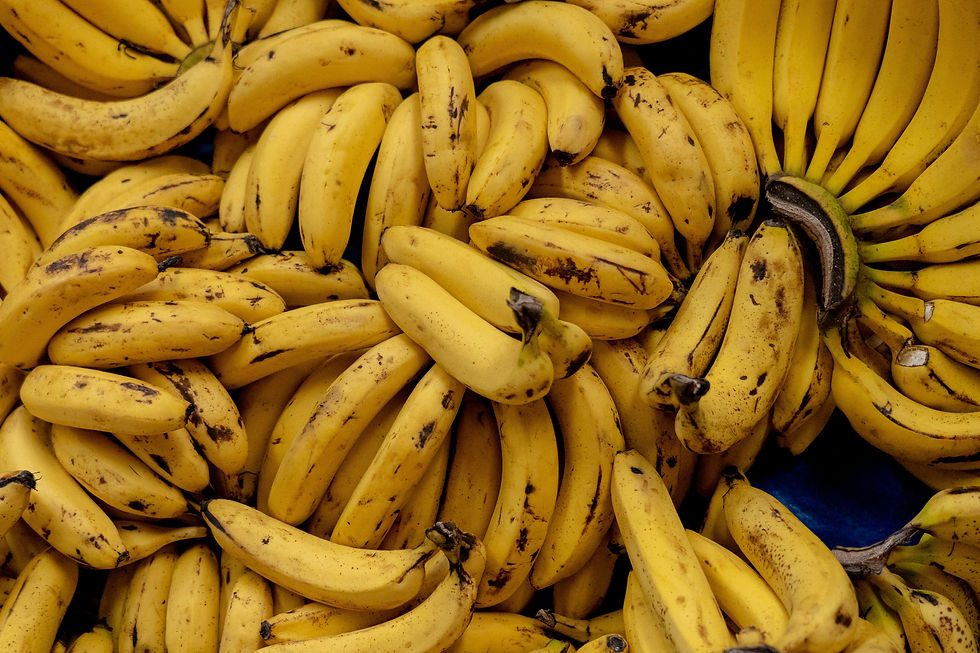The latest news, trends, analysis, interviews and podcasts from the global food and beverage industry
A US court has ordered Chiquita Brands International to pay $38.3 million in damages to the families of eight Colombians killed by a paramilitary death squad that the banana company funded for years.
The landmark verdict marks the first time a major US corporation has been held liable for human rights abuses committed abroad.
The ruling opens the door for similar lawsuits against companies accused of profiting from violence and abuses in their global operations.
Experts say that this sets a significant precedent for corporate accountability, conveying a clear message that "profiting from human rights abuses will not go unpunished," according to Marco Simons of EarthRights, one of the law firms representing the families of those killed by the paramilitaries.
A federal jury in Florida found that Chiquita knowingly provided substantial assistance to the United Self-Defence Forces of Colombia (Autodefensas Unidas de Colombia, AUC), which was designated a terrorist organisation by the US in 2001. The company had admitted in 2007 to paying the AUC $1.7 million from 1997 to 2004.
Chiquita argued it was extorted by the AUC and needed to make the payments to protect its employees. However, the plaintiffs said the company formed an "unholy alliance" with the paramilitaries as it expanded into AUC-controlled regions of Colombia.
The AUC was responsible for the bulk of civilian casualties during the country's long-running civil conflict, engaging in widespread killings, forced disappearances and other abuses that often targeted trade unionists and banana workers. The group left 450,000 people dead and millions displaced over the course of the decades-long violence.
"This verdict does not bring back the husbands and sons who were killed, but it sets the record straight and places accountability for funding terrorism where it belongs: at Chiquita's doorstep," said Agnieszka Fryszman, one of the lead lawyers for the plaintiffs.
The case was a "bellwether trial," according to Terrence Collingsworth of International Rights Advocates, one of the legal firms representing the victims' families. If other pending cases are not resolved through negotiation, a second bellwether trial is scheduled for 14 July.
"These brave women and the other plaintiffs in this case have demonstrated that corporate criminals like Chiquita can be held accountable through courage and perseverance," Collingsworth added. "Hopefully, this verdict will inspire others to fight for corporate accountability."
Chiquita said it would appeal the jury's decision, maintaining there was "no legal basis for the claims".
In a statement, the company expressed sympathy for those affected by the violence in Colombia, describing the situation as "tragic for so many, including those directly impacted".
The statement continued: "However, that does not change our belief that there is no legal basis for these claims. While we are disappointed by the decision, we remain confident that our legal position will ultimately prevail.”
Legal experts suggest the historic ruling could impact numerous other cases awaiting trial, as it marks the first time an American jury has held a major US corporation responsible for involvement in egregious human rights abuses overseas.
The verdict sets a powerful global precedent for corporate accountability and could lead to a wave of similar lawsuits against multinationals accused of profiting from violence and rights violations in their international operations.
FoodBev has reached out to Chiquita for further commentary.
The importance of a transparent, clean supply chain
This case underscores the important role transparency plays in preventing human rights abuses, ensuring corporate accountability and fostering ethical practices.
Human rights and ethical implications
The connection between opaque supply chains and human rights violations is evident in the Chiquita case. From 1997 to 2004, Chiquita admitted to financing the AUC, a paramilitary organisation associated with severe human rights abuses, including murder and torture.
A transparent supply chain would have exposed these unethical practices, preventing Chiquita from openly supporting such incidents. Transparency ensures that every operational step is accountable, deterring companies from engaging in or supporting illegal and unethical actions.
Case study: Nestlé and child labour in cocoa production
In the early 2000s, Nestlé faced significant backlash for its involvement in child labour on cocoa farms in West Africa. Investigations revealed that children were working in hazardous conditions to produce cocoa for Nestlé's chocolate products.
Nestlé has since implemented the Nestlé Cocoa Plan, which includes monitoring and remediation systems to prevent child labour. This case underscores the importance of supply chain transparency in addressing and mitigating human rights abuses within the food and beverage sector.
Corporate accountability and legal precedent
This ruling represents the first instance of a major US corporation being held liable for human rights abuses committed abroad. Transparent supply chains are essential in establishing corporate accountability.
They make it possible to trace unethical practices directly back to the corporation, ensuring that companies cannot escape responsibility through convoluted supply networks.
Case Study: Coca-Cola and labour rights violations
Coca-Cola has faced numerous allegations of labour rights violations in its supply chain, particularly in countries like Colombia and Guatemala, where workers reported intimidation and violence for unionising.
Coca-Cola has since taken steps to improve transparency and labour practices by partnering with the International Labor Organization and other bodies to monitor working conditions. This move towards transparency has helped Coca-Cola address labour rights issues and improve its global image.
Ethical sourcing and consumer trust
Modern consumers are increasingly conscientious about the ethical implications of their purchases. They demand assurance that their products are sourced responsibly and without exploiting workers or harming communities.
A transparent supply chain meets these demands by demonstrating a company's commitment to ethical sourcing. Conversely, opaque supply chains, as evidenced by Chiquita's covert dealings, can severely damage consumer trust and brand reputation.
Case Study: Starbucks and ethical coffee sourcing
Starbucks has long been an advocate for ethical sourcing, particularly with its commitment to Fair Trade coffee. The company ensures transparency in its supply chain by partnering with Fair Trade organisations and investing in sustainable farming practices.
This commitment has bolstered consumer trust and loyalty, demonstrating that transparency in sourcing can lead to substantial brand equity and customer satisfaction.
Risk management and mitigation
Supply chain transparency is crucial for identifying and mitigating risks. Chiquita's payments to AUC exposed the company to substantial legal, financial and reputational risks.
A transparent supply chain allows for early detection and intervention, enabling companies to avoid severe consequences. Transparency acts as an early warning system, highlighting potential risks and unethical practices before they escalate into significant issues.
Case Study: Hershey’s and sustainable cocoa sourcing
Hershey’s has faced criticism for its cocoa sourcing practices, including allegations of child labour and poor working conditions. In response, Hershey’s has increased transparency by committing to sourcing 100% certified and sustainable cocoa by 2020.
This effort includes detailed reporting on supply chain practices and partnerships with organisations that monitor and improve labour conditions. Hershey’s initiative highlights how transparency can be leveraged to manage risks and improve ethical standards.
Regulatory compliance and legal adherence
Increasingly stringent laws and regulations require companies to maintain transparent supply chains to prevent human rights abuses and ensure ethical practices.
Transparent supply chains are not only a moral imperative but also a strategic approach to staying ahead of regulatory demands, ensuring legal compliance and promoting sustainable business practices.
Case Study: The UK Modern Slavery Act and Food Industry Compliance
The UK Modern Slavery Act of 2015 requires businesses to disclose efforts to ensure their operations and supply chains are free from modern slavery. This legislation has prompted food and beverage companies to enhance their supply chain transparency and implement robust due diligence processes.
Companies like Unilever have published detailed reports on their supply chain practices and efforts to combat modern slavery, demonstrating compliance and commitment to ethical sourcing.
The landmark $38.3 million verdict against Chiquita Brands sets a powerful precedent, underscoring the urgent need for food and beverage firms to prioritise supply chain transparency. Chiquita's opaque operations exposed the company to severe legal, financial and reputational consequences.
Experts warn this case could inspire a wave of similar lawsuits, forcing the industry to fundamentally reform its approach to traceability and visibility across complex global sourcing networks – as true corporate accountability now requires robust due diligence to identify and mitigate risks, rather than hiding behind the complexity of international supply chains.
#Chiquita #transparency #traceability #CSR










